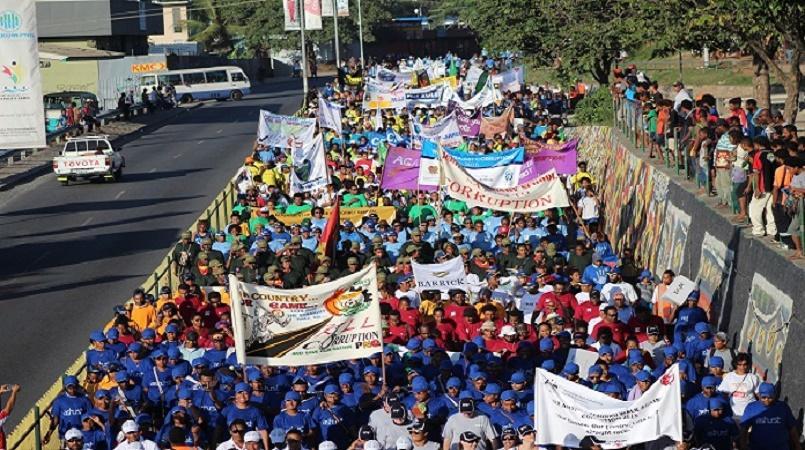
Transparency International PNG (TIPNG) is calling on all Members of Parliament (MP) to pay particular attention to the anti-bribery laws for the upcoming vote of no-confidence this Friday.
Chairman of TIPNG, Lawrence Stephens, said Sections 61 and 62 of the Criminal Code Act 1974 clearly outlines that bribery of Members of Parliament involves, “attempts, directly or indirectly, by fraud, threats or intimidation of any kind, to influence a member of the Parliament in his vote, opinion, judgement or action on any such question or matter, or to induce him to so absent himself”.
“Our Members and each of us must be urgently reminded of the provisions pertaining to Bribery within the Act.
“We encourage any MP who feels that she or he is being coerced to read Section 97c of the Criminal Code Act and at the earliest opportunity report the matter to a commissioned police officer.”
Stephens explained that TIPNG’s concerns are drawn from its 2015 Public Opinion Survey on the Levels of Corruption in Papua New Guinea.
He said the survey showed 53 percent of people in the country said they had paid a bribe and that 81 percent of respondents saw MPs as the key causative agents of corruption.
“There are rumours of massive cash movements in political circles at present. Hopefully there is no truth in the rumours, but nevertheless it is a good time for each of us to reflect on the law and the reason for the law.
“Elected officials, public servants, law enforcers and the community should be aware of the anti-bribery laws and make sure they are followed. As Papua New Guineans, we deserve leaders who will abide by the laws that they make,” said Stephens.
